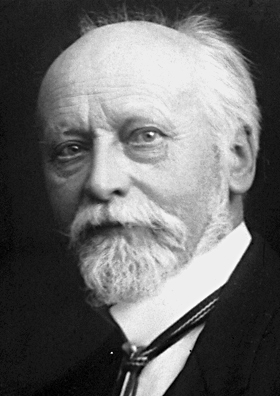Why was Ludwig Quidde Awarded the Nobel Prize for Peace in 1927?
A Visionary Advocate of Disarmament and International Harmony
Ludwig Quidde: A Champion of Peace Recognized by the Nobel Prize
In the annals of history, the Nobel Prize for Peace has been awarded to individuals who have dedicated their lives to the promotion of peace, the prevention of war, and the advancement of global harmony. One such distinguished laureate was Ludwig Quidde, whose contributions and unwavering commitment to pacifism and disarmament led him to be awarded the coveted Nobel Prize for Peace in 1927.

Ludwig Quidde’s Early Life and Activism
Ludwig Quidde, born on March 23, 1858, in Bremen, Germany, was a multifaceted personality who became an icon of peace activism. Initially trained as a historian, Quidde possessed a deep understanding of the historical consequences of war and conflict. Influenced by his academic background, he became an outspoken critic of militarism, advocating for international cooperation and diplomacy as alternatives to armed confrontation.
Quidde’s Impact on Disarmament Efforts
One of the primary reasons for Ludwig Quidde’s recognition with the Nobel Peace Prize was his active involvement in disarmament initiatives. In the aftermath of World War I, Quidde was deeply disturbed by the devastation and loss of life caused by the conflict. He channeled his energy into campaigning for arms reduction and disarmament agreements as a means to prevent future catastrophes.
Quidde played a crucial role in promoting the concept of collective security and the establishment of international institutions that could serve as platforms for peaceful resolutions. His tireless efforts aimed to replace the military arms race with cooperative diplomacy and negotiation, ultimately seeking to create a world in which conflicts could be resolved through dialogue rather than warfare.
Ludwig Quidde’s Advocacy for the League of Nations
Central to Quidde’s pursuits was his enthusiastic support for the League of Nations, an intergovernmental organization founded after World War I to prevent further conflicts through diplomatic means. Quidde believed that the League could be instrumental in fostering international understanding and ensuring lasting peace.
Quidde’s commitment to the League was evident through his extensive writings and speeches, where he passionately argued for its strengthening and expansion. His belief in the potential of the League as a mechanism for global cooperation and dispute resolution earned him widespread recognition as a prominent advocate for peace.
Legacy and Lasting Influence
Ludwig Quidde’s unwavering dedication to the cause of peace left an indelible mark on the world stage. Beyond his Nobel Peace Prize, Quidde’s legacy endures through his contributions to academia, peace movements, and international relations. His ideals continue to inspire generations of activists and scholars committed to upholding the values of harmony, cooperation, and conflict resolution.
The recognition of Ludwig Quidde with the Nobel Prize for Peace in 1927 stands as a testament to his remarkable contributions to the advancement of peace and disarmament. His relentless efforts to replace militarism with diplomacy, and his fervent advocacy for the League of Nations, demonstrate his profound commitment to a world free from the scourge of war. Quidde’s legacy serves as a reminder that even in the face of adversity, the pursuit of peace remains an invaluable endeavor deserving of honor and recognition.




